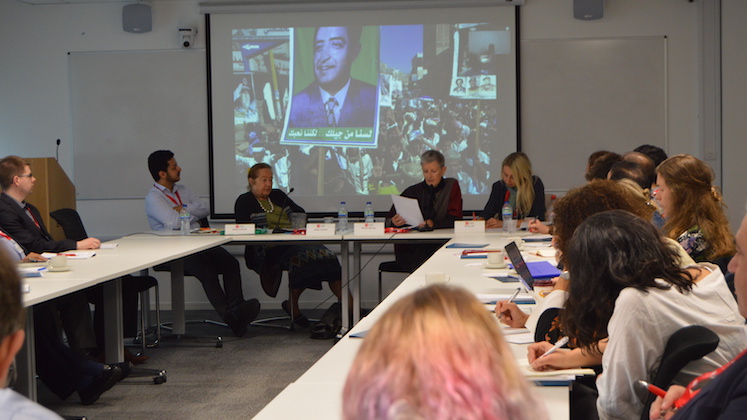
Call for Papers
The war that began on October 7, which has exacted an horrific human and physical toll, is a searing and irreversible turning point in the conflict between Israel and the Palestinians, with broad regional ramifications. The conflict has evolved into a multi-front war with active participation of actors in Lebanon, Syria and Yemen, as well as US intervention.
The aim of this interdisciplinary workshop is to understand these events in the context of the longer-term trajectory of Arab-Israeli relations, which are exhibiting intractable conflict in tandem with a shift towards normalisation and cooperation.
The signing of the Abraham Accords in 2020, Israeli-Saudi negotiations over a potential peace accord, and plans to create a transport corridor from India to the EU via the Middle East and Israel, have been emblematic of a potentially new era of Arab-Israeli collaboration, opening transformative political, social, economic, and environmental prospects. The Abraham Accords, and Israeli-Saudi aspirations for normalisation, have proven strikingly resilient despite the significant impact of the Israel-Hamas War on Arab public opinion. At the same time, the expansion of this destructive war to a conflict on three fronts, including Hezbollah and the Houthis, is a stark reminder of the persistence and danger entailed by Arab-Israeli conflict.
Arab-Israeli relations should further be assessed in a geopolitical context, with the calculations of regional and external actors shaped by resurgent great power competition, and the declining prioritisation of democracy and human rights in Western capitals. At the same time, we must take account of the dramatic rise of religious fundamentalist and extreme nationalist politics in Israel, and how Arab-Israeli relations are impacted by the lack of political horizon and unprecedented levels of violence in the Israeli-Palestinian arena.
Informed by a multidisciplinary perspective, contributors might want to engage with immediate or longer term questions relating to Arab Israeli relations, including: To what extent are ideologies developed during the 20th century still affecting Arab-Israeli relations? What is the significance of top-down and bottom-up cultural and religious bridge building? Does the significance and meaning of ‘territory’ remain fixed or has it changed amid economic, social, cultural and political changes affecting Arab-Israeli relations? What is the geopolitical significance of new vistas in regional infrastructural development and economic integration that have been opened up by Arab-Israeli normalisation? How might climate change amplify pre-existing vulnerabilities stemming from conflict, displacement marginalisation and corruption, but also create opportunities for cooperation? How and in what ways is rapid technological change affecting conflict and prospects for collaboration? In sum: what are the wider set of drivers of foreign policy change and continuity in Arab-Israeli relations?
This workshop is rooted in a commitment towards interdisciplinarity, theoretical pluralism and methodological diversity, and to providing a safe space for discussion. Thus, we hope to assemble a group of scholars that are keen to tackle some of the key questions underpinning Arab-Israeli relations in a changing environment, without restricting ourselves by artificial disciplinary or methodological boundaries.
Download the call for papers here.
Submission Guidelines:
Please send your tentative original paper title, a 300-word abstract and updated bio by Friday 29 March 2024 to mec.events@lse.ac.uk. Please use the title of the workshop as the subject line of the email.
Authors of accepted papers will be notified by early April. For those accepted, draft papers (max 6,000 words) will have to be submitted by Friday 31 May 2024. Papers should not be previously published.
Proposed publication outlets (e.g. journal special issue) for the papers will be discussed with participants at the workshop.
A limited travel fund will be available if your paper is accepted. This will be available for UK-based students and early career researchers, or those without access to institutional funding. Please note in your submission if you would like to be considered for the travel fund.
This workshop has been organised by Amnon Aran, Visiting Professor at the LSE Middle East Centre and Professor of International Relations at City, University of London and Dr Toby Greene, Visiting Fellow at the LSE Middle East Centre and Lecturer in the Political Studies Department at Bar Ilan University.